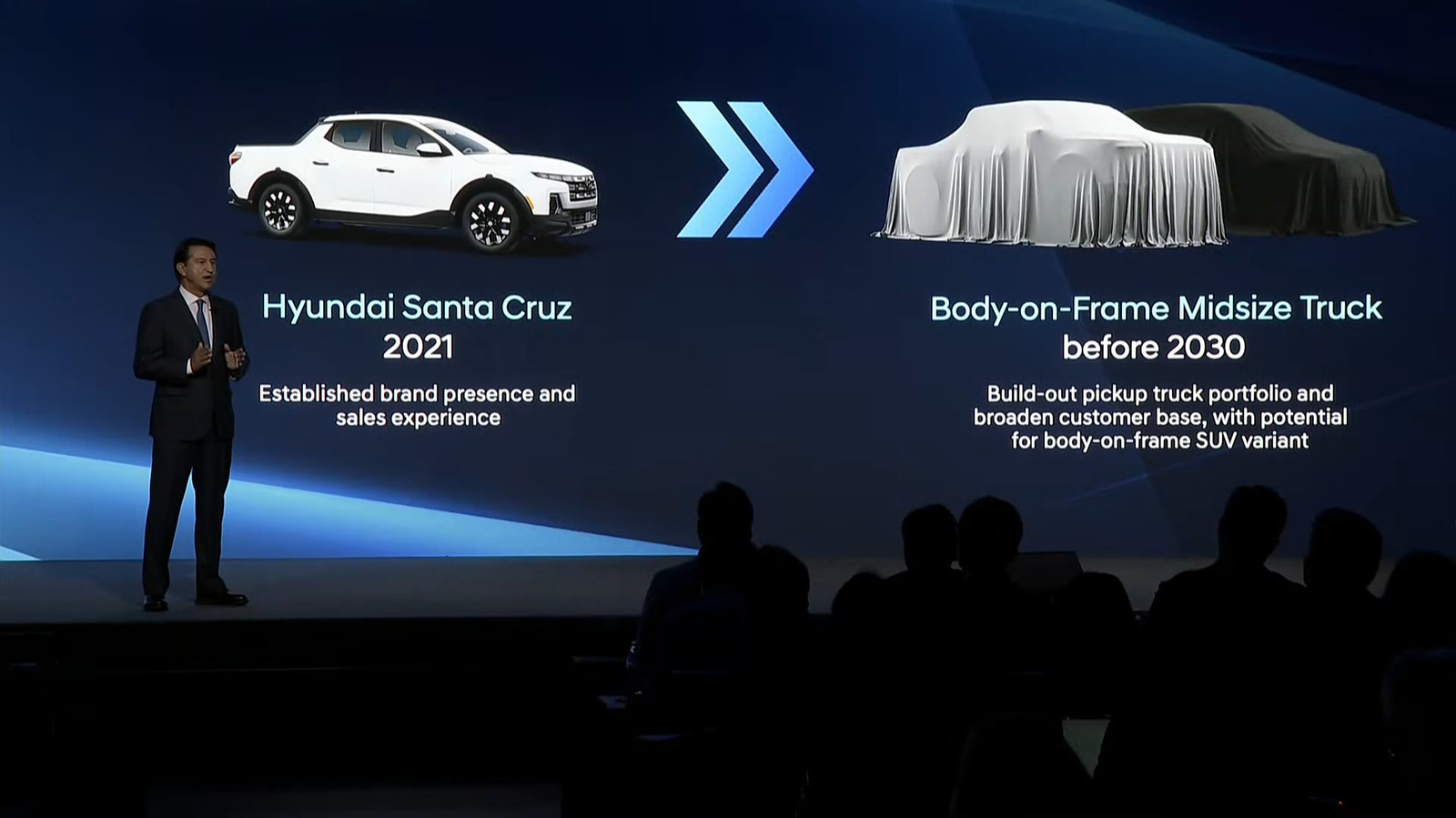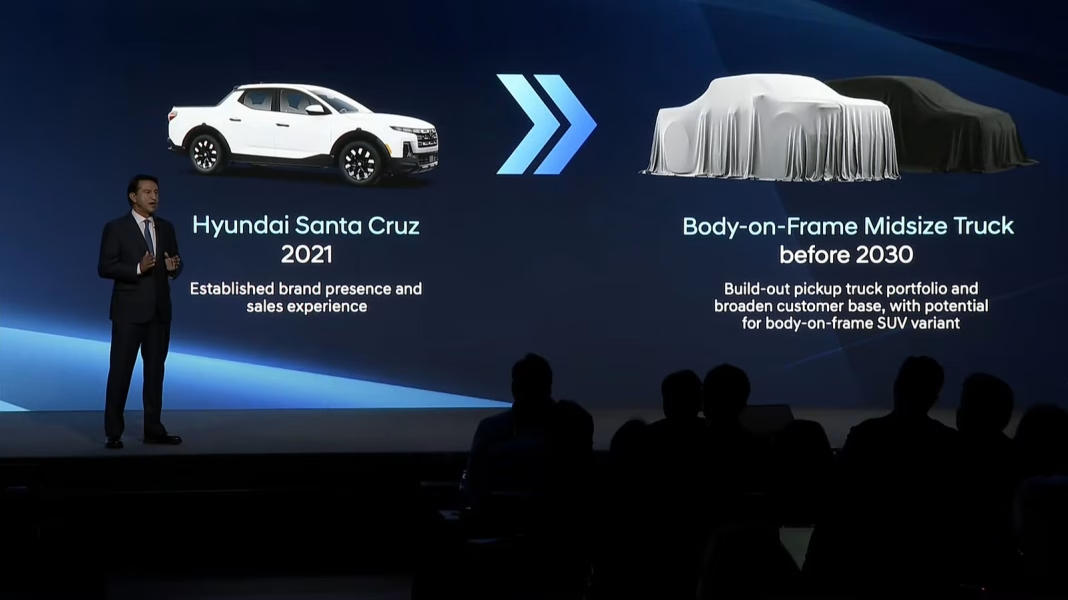What Sets This Upcoming Korean Truck Apart from Hyundai’s Other Projects?
If you’ve been following the pickup scene, you might have heard whispers about a new Korean truck making its way to the US market before 2030. But here’s the twist: this isn’t just another badge-engineered version of Hyundai’s collaborations with GM for Central and South America. Instead, we’re talking about a fresh, independent project—one that’s being built from the ground up with American drivers in mind.
Unlike the compact Santa Cruz or the rebadged models for overseas markets, this new truck is expected to feature a true body-on-frame design. That means it’s built for real work—towing, hauling, and off-road adventures—not just city cruising. Industry insiders suggest that Hyundai is aiming to compete directly with established midsize pickups like the Toyota Tacoma and Ford Ranger, but with a unique Korean twist: advanced technology, bold styling, and a focus on efficiency.
Will This Truck Offer Hybrid Power or Go All-Electric?
One of the most exciting rumors swirling around this project is the possibility of a hybrid or even fully electric powertrain. While Hyundai hasn’t confirmed specifics, their recent investments in electrification and hybrid technology make this a safe bet. The company’s global strategy has been to electrify nearly every segment, and the pickup market is ripe for disruption.
Consider the current landscape: Ford’s Maverick Hybrid is flying off dealer lots, and Toyota’s Tacoma Hybrid is generating serious buzz. Hyundai knows that American truck buyers are increasingly interested in fuel savings without sacrificing capability. If they can deliver a midsize truck that pairs real towing muscle with hybrid efficiency—or even a plug-in option—they could hit a sweet spot that’s been largely overlooked.
How Might This Truck Influence the US Pickup Market?
Hyundai’s entry into the midsize truck segment isn’t just about adding another option to the list. It’s about shaking up a category that’s been dominated by the same players for decades. The brand’s reputation for value, reliability, and tech-forward features could force competitors to up their game.
Take, for example, Hyundai’s success with the Palisade SUV. When it launched, it quickly became a favorite for families who wanted luxury touches without the luxury price tag. If Hyundai brings that same formula to a rugged, body-on-frame truck—think plush interiors, advanced safety systems, and a user-friendly infotainment suite—it could redefine what buyers expect from a midsize pickup.
What Features and Capabilities Can Buyers Expect?
While official specs are still under wraps, early reports and industry analysis point to a few likely features. Expect a robust ladder frame, available four-wheel drive, and a range of engine options that could include turbocharged gas, hybrid, and possibly even diesel for select markets. Payload and towing numbers will need to match or exceed rivals, likely targeting at least 6,000 pounds of towing capacity.
Inside, Hyundai is known for packing in features that are optional elsewhere—heated seats, large touchscreens, wireless charging, and advanced driver assistance tech. Don’t be surprised if this truck arrives with a suite of standard features that make it feel more like a luxury SUV than a bare-bones workhorse.
How Will This Truck Fit into Hyundai’s Broader Strategy?
Hyundai’s move into the US truck market is part of a bigger plan to diversify its lineup and capture new customers. The company has already proven it can build reliable, stylish SUVs and crossovers. Now, it’s betting that American buyers are ready for a Korean alternative in the pickup world.
According to a 2023 report from S&P Global Mobility, midsize truck sales in the US grew by nearly 8% year-over-year, with buyers increasingly seeking alternatives to full-size pickups. Hyundai’s timing couldn’t be better. By offering a truck that blends capability with efficiency and tech, the brand stands to attract both traditional truck fans and newcomers who might have never considered a pickup before.
What Does This Mean for Truck Buyers in the Next Few Years?
The arrival of this new Korean truck signals a shift in what buyers can expect from the segment. It’s not just about brute strength anymore—efficiency, comfort, and smart features are becoming just as important. If Hyundai delivers on its promises, the competition will have to respond, leading to better trucks for everyone.
The big takeaway? The future of pickups isn’t about perfection—it’s about smarter adjustments. Start with one change this week, and you’ll likely spot the difference by month’s end.


